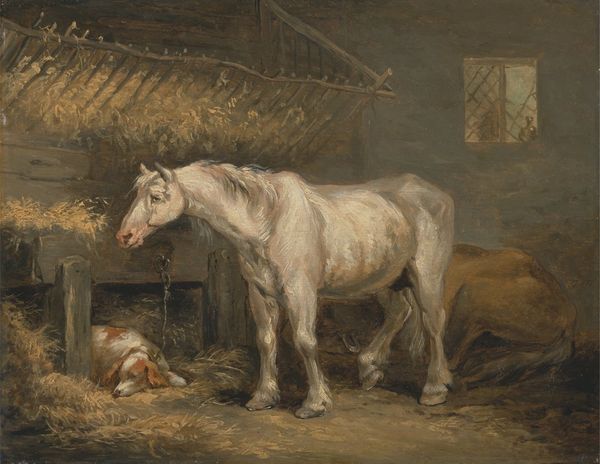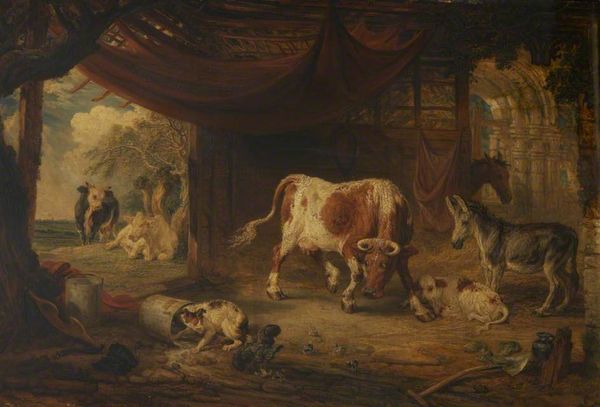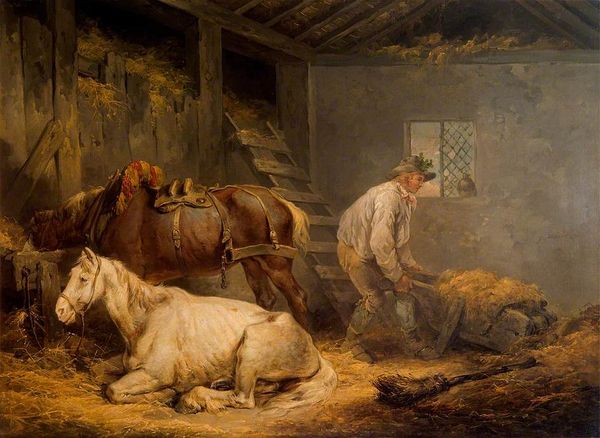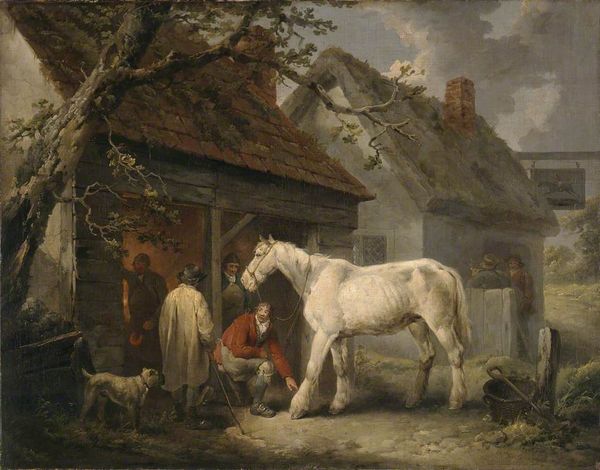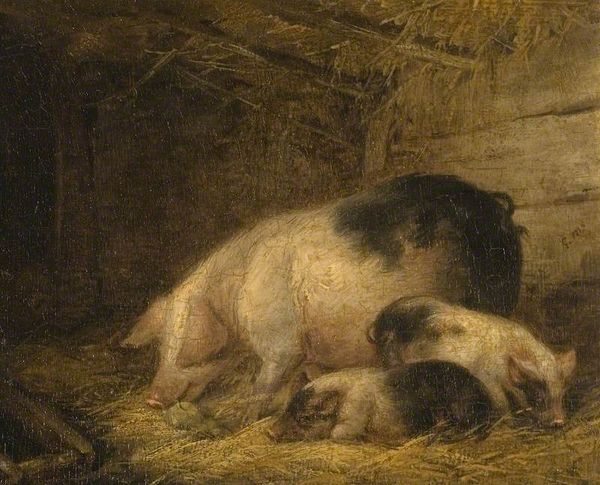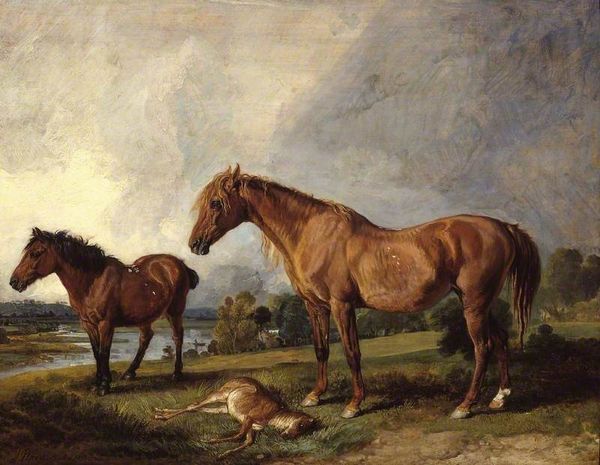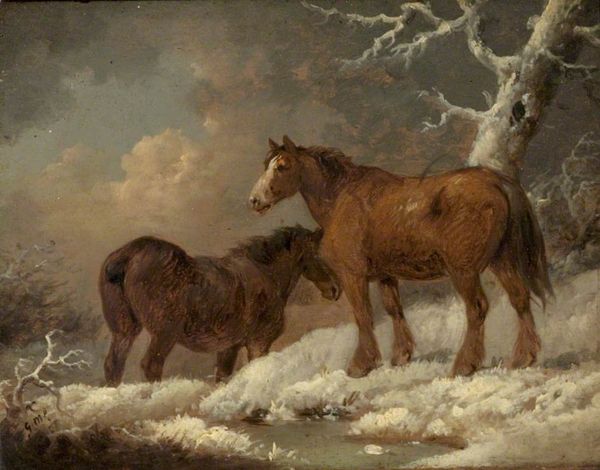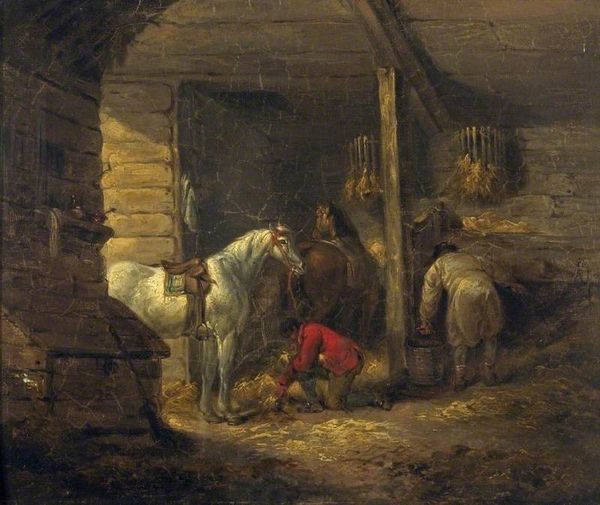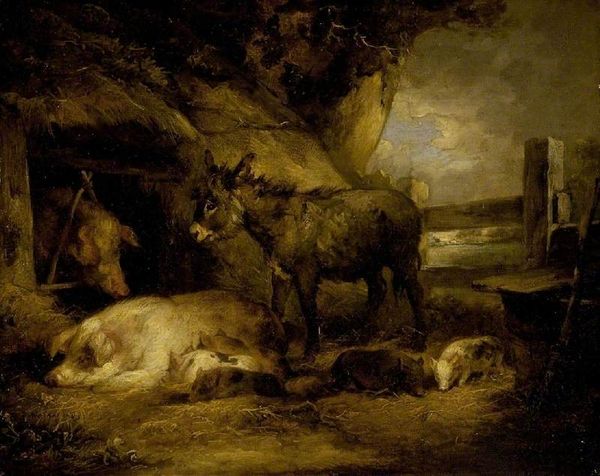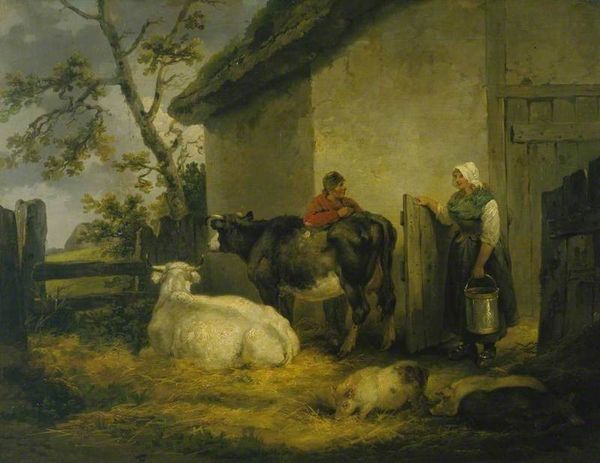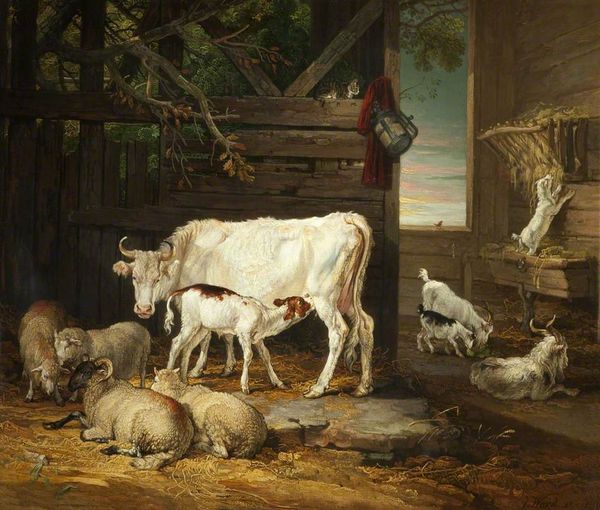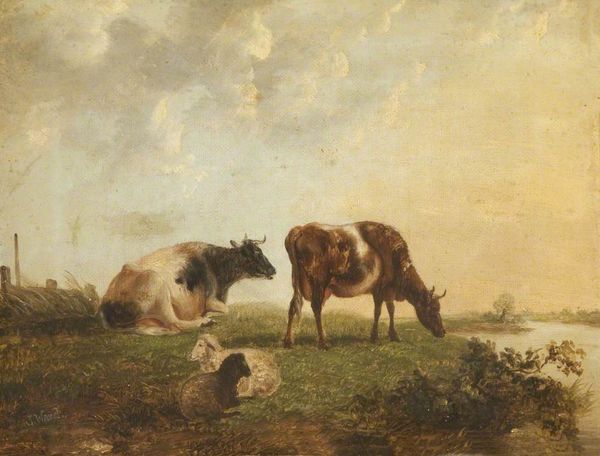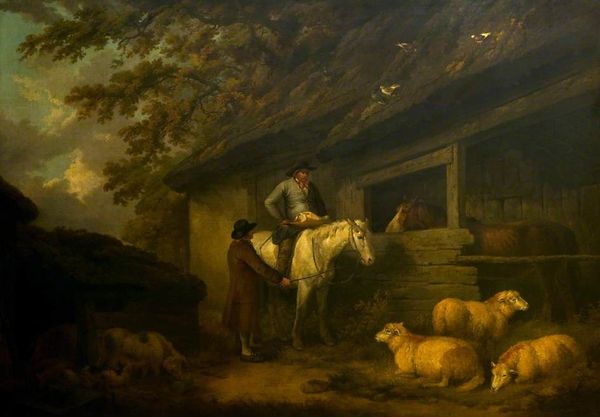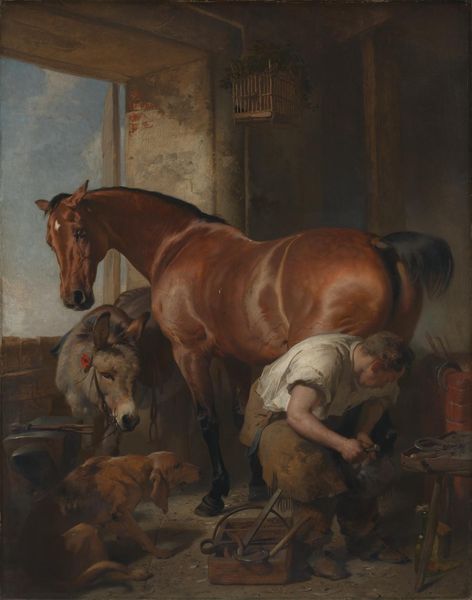
painting, oil-paint
#
painting
#
oil-paint
#
landscape
#
charcoal drawing
#
nature
#
romanticism
#
animal portrait
#
horse
#
genre-painting
#
charcoal
#
natural form
Copyright: Public domain
Editor: So, here we have George Morland’s "Horse and Dog in a Stable," painted in 1791, using oil. There's something about the stillness of this scene, the horse seemingly lost in thought, that makes me wonder about the lives of animals within these agricultural settings. What do you see in this piece, beyond just a depiction of animals in a barn? Curator: This artwork offers a window into the complex social dynamics of 18th-century rural England. We have to consider the Romantic movement, which often idealized nature but also had its blind spots. Think about the role of animals: were they merely property, or were they seen as having some intrinsic value? Editor: That’s a really interesting point. I hadn't considered the idea of "value" in that way. So, is Morland suggesting a certain social commentary here? Curator: Possibly. Look at how the animals are positioned—the horse, central but weary, and the dog, relegated to the straw. Are they symbols of different social strata? Are they indicators of labor and class within a system? Consider how this resonates with contemporary discussions of animal rights and ethical treatment. What does it mean to represent animals in art, then and now? Editor: I suppose seeing them represented is more than meets the eye, reflecting historical values. The window into the stable feels like a peephole into society itself. Curator: Precisely. It's a negotiation between art and social reality, between romanticism and hard labor, that makes this unassuming genre scene much more complex. Hopefully, the art sparks discussion. Editor: Absolutely. I'm seeing this work in an entirely new, thought-provoking way now. Curator: Glad to bring a new point of view to your way of considering it!
Comments
No comments
Be the first to comment and join the conversation on the ultimate creative platform.
